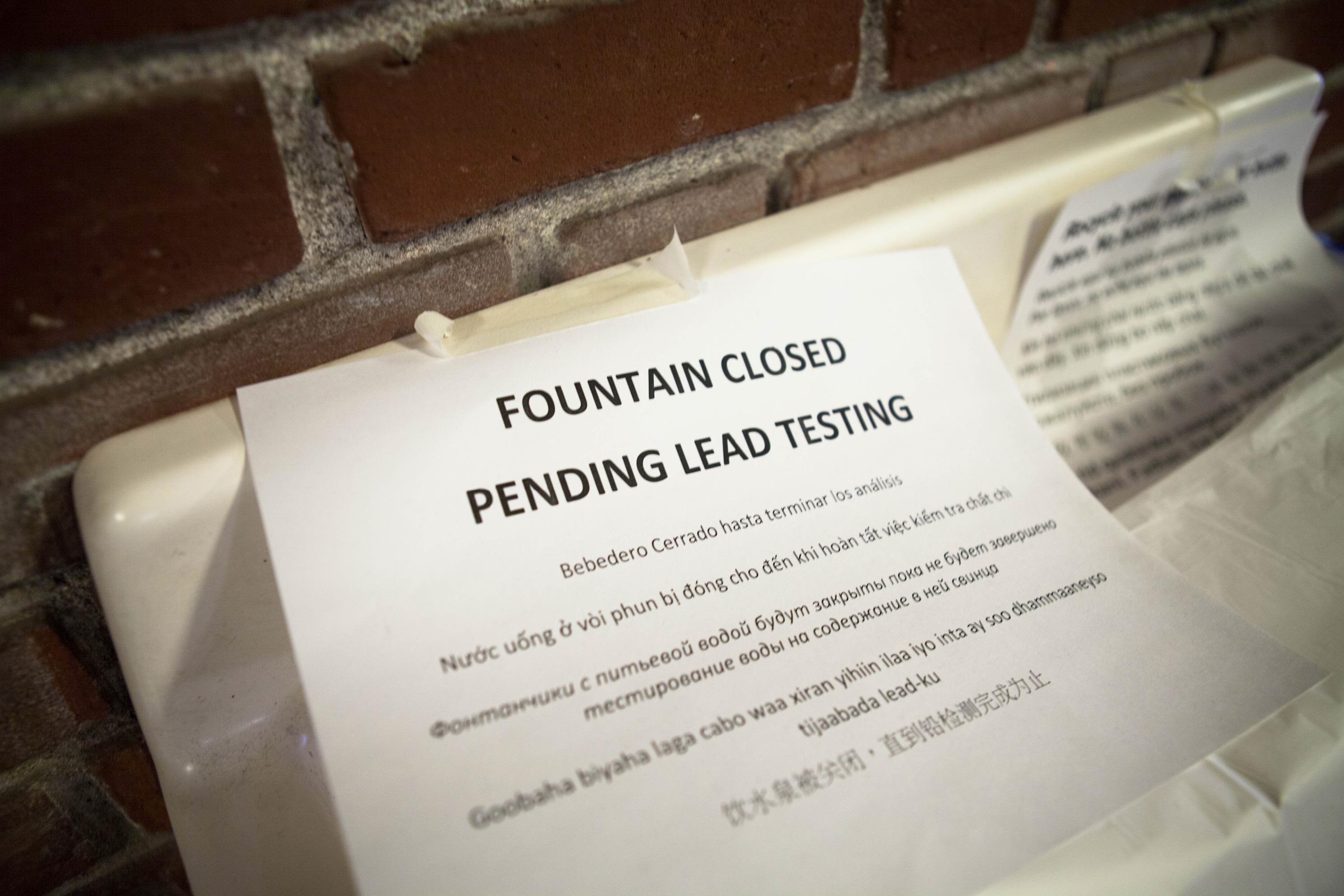
A drinking fountain at Rose City Park school is closed.
Amelia Templeton / OPB
Oregon officials announced plans Wednesday aimed at finding and reducing lead in drinking water at schools and day care centers. It has more recommendations than requirements.
The plan begins by recommending that public schools as well as privately-run preschools and day care centers test their water and use certified labs to do it. But the plan doesn't require the tests.
The Oregon Early Learning Division holds the licenses for thousands of private child care facilities in the state. The Oregon Department of Education regulates the state's 197 public school districts. Together, they have a major role in supervising hundreds of thousands of Oregon children.
But officials at both agencies said they lack the legal authority to force anyone to test for lead in drinking water.
"We don't have any rules around testing water quality or safety," said Karol Collymore with the Early Learning Division.
"The only rule that we have is that there is fresh drinking water available on site. So, what we're hoping is – and encouraging our providers to just get their water tested," she said.
Interim communications director at the Oregon Department of Education Amy Wojcicki said their focus is on sharing information with school districts, rather than forcing them to take action.
"We want to make sure we communicate with school districts so they have best practices in order to protect students' health and safety," Wojcicki said.

Jeff Strang of the Multnomah County Health Department draws blood from ACCESS Academy 8th grader Maura Kelley to test for lead.
Jonathan House
The plan doesn’t provide any money to do the testing.
A number of Oregon school districts have already announced plans to test drinking water for lead, including Beaverton, Eugene and Portland Public Schools, all districts where lead has been found in school water recently.
School districts haven't raised the cost issue publicly, but state officials are sensitive to cost, particularly for small, privately run day care providers and preschools. Collymore pointed out it is possible to get water tested for free at Multnomah County health fairs, for instance.
The Oregon Department of Education and Oregon Health Authority have been meeting since April to come up with a plan after being directed to do so by Gov. Kate Brown.
Collymore said the Early Learning Division joined the conversation a little later, as worries surfaced about lead in the water at Portland-area Head Start programs.
While the education agencies' focus is on increasing testing, the Oregon Health Authority is focusing on collecting and publicizing those test results.
The Oregon Health Authority intends to draft new rules that would require certified labs share lead test results with the state.

Children lined up with their parents to get tested for lead exposure, outside Rose City Park School, June 6 2016.
Rob Manning / OPB
OHA spokesman Robb Cowie said labs aren’t required to share lead results, at least not yet.
“OHA will work with laboratories to update our rules to make lead testing results reportable,” Cowie said.
Cowie said OHA has the legal authority to require that labs share lead data, but it has to write rules first.
A joint statement from Gov. Brown and three state agencies said the new plan aims to "close a loophole" in water regulation. Under the law, municipalities have to test for lead, and schools have to test for it if they draw water from their own wells. But schools that get water from municipal or other providers don't have to conduct their own tests.
School districts, especially Portland Public Schools, have drawn vocal criticism for not sharing information on lead in drinking water and not adequately fixing the problems.
State oversight of municipal water supplies has also been called into question. The federal Environmental Protection Agency contacted the Oregon Health Authority in April to raise concerns about Portland's drinking water quality and its effect on vulnerable populations like pregnant women and children and to push for action by the Portland Water Bureau.
OHA officials told OPB they didn’t “want to get ahead of the governor” on the issue, referring to discussions between the Health Authority and the state Education Department that produced the new plan.
But the plan released Wednesday makes no mention of OHA action toward municipal water authorities, such as the Portland Water Bureau.
